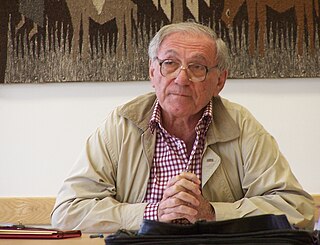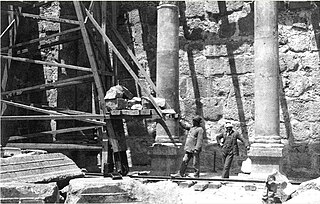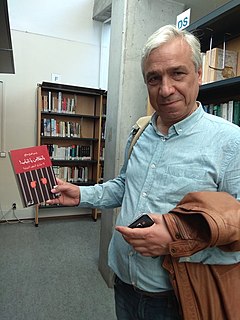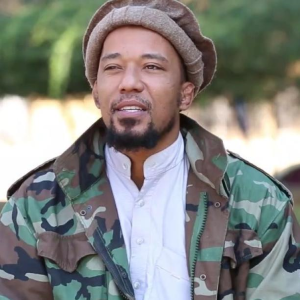
The Damascus affair of 1840 refers to the arrest of several notable members of the Jewish community in Damascus on the accusation of murdering Father Thomas, a Christian monk, and his servant for the purpose of using their blood to bake matzo, an anti-semitic accusation also known as the blood libel. The accused were imprisoned and interrogated under torture by the Egyptian governor of Damascus, after which they confessed to the murder. In the aftermath of the incident, Christian and Muslim violence against the Jewish population increased. The affair drew widespread international attention, especially among European Jewry. After receiving a request from Sir Moses Montefiore and Adolphe Crémieux, Muhammed 'Ali released the remaining prisoners but without officially acquitting them. In November 1840, after the restoration of Ottoman rule over Syria, Sultan Abdülmecid I issued a firmān (edict) that denounced the blood libel charges.
Majd ad-Dīn Usāma ibn Murshid ibn ʿAlī ibn Munqidh al-Kināni al-Kalbī was a medieval Muslim poet, author, faris (knight), and diplomat from the Banu Munqidh dynasty of Shaizar in northern Syria. His life coincided with the rise of several medieval Muslim dynasties, the arrival of the First Crusade, and the establishment of the crusader states.
Mohammed Haydar Zammar is a German-Syrian militant who served as an important al-Qaida recruiter, and is currently a member of the Islamic State. He claims to have recruited many of the organizers of the September 11, 2001, attacks. He was detained in Far'Falastin. A video believed to be taken in early 2014 places him listening to a speech by Abu Ali al-Anbari, the number two in the Islamic State, in Aleppo, Syria.

Jamal Nebez was a Kurdish linguist, mathematician, politician, author, translator and writer. He studied Islamic law, philosophy, theology, physics and mathematics at the University of Baghdad in the 1950s. In 1956, he prepared a stenciled script on algebra and in 1960, succeeded in publishing the first physics book in Kurdish, including a rich glossary of Kurdish terms pertaining to physics and mathematics. He translated several literary works, including works of Nikolai Gogol and William Shakespeare into Kurdish. He also wrote and published several books on a variety of topics. Most of the books are mainly about topics related to Kurds.

Sadiq Jalal Al-Azm was a Professor Emeritus of Modern European Philosophy at the University of Damascus in Syria and was, until 2007, a visiting professor in the Department of Near Eastern Studies at Princeton University. His main area of specialization was the work of German philosopher Immanuel Kant, but he later placed a greater emphasis upon the Islamic world and its relationship to the West, evidenced by his contribution to the discourse of Orientalism. Al-Azm was also known as a human rights advocate and a champion of intellectual freedom and free speech.
Jamāl al-Dīn Abū al-Ḥajjāj Yūsuf ibn al-Zakī ʻAbd al-Raḥmān ibn Yūsuf ibn Abd al-Malik ibn Yūsuf al-Kalbī al-Quḍā’ī al-Mizzī,, also called Al-Ḥāfiẓ Abī al-Hajjāj, was a Syrian muhaddith and the foremost `Ilm al-rijāl Islamic scholar.
Stefan Heidemann is a German orientalist at Hamburg University, Hamburg.

Sinan Antoon, is an Iraqi poet, novelist, scholar, and literary translator. He has been described as "one of the most acclaimed authors of the Arab world." He is an associate professor at the Gallatin School of Individualized Study at New York University.
Maarouf al-Dawalibi, was a Syrian politician and was twice the prime minister of Syria. He was born in Aleppo, and held a Ph.D. in Law. He served as a minister of economy between 1949 and 1950, and was elected speaker of the parliament in 1951. He also served as minister of defense between 1954 and 1955. After the Ba'ath party came to power in 1963, he was imprisoned and later exiled, serving as an adviser to several Saudi kings, including King Khalid. His son, Nofal al-Dawalibi, is involved in the Syrian Opposition.
Adel Karasholi is a German and Arabic writer of Syrian Kurdish origin.

Carl Watzinger was a German-born archaeologist, who with Ernst Sellin, worked on uncovering the site of the ancient city of Jericho (1907–09), and earlier, with Heinrich Kohl (1877–1914), conducted excavations at Capernaum (1905).

Yassin al-Haj Saleh is a Syrian writer and political dissident. He writes on political, social and cultural subjects relating to Syria and the Arab world.
Dima Wannous is a Syrian writer and translator. She studied French literature at Damascus University and the Sorbonne. She also studied translation in France and has lived in Beirut, where she worked for the newspapers Al-Hayat and As-Safir. She has also worked for broadcast media.

Denis Mamadou Gerhard Cuspert, also known by his stage name Deso Dogg and his nom de guerreAbu Talha al-Almani, was a German rapper who became a member of Islamic State.
Annabelle Boettcher is professor, expert on Syria and advisor for the humanitarian aid industry.
Michael Meinecke was a German art historian, archaeologist and Islamic studies scholar who was director of the Museum of Islamic Art in Berlin from 1988 to 1995.

The Syrian Cultural Caravan is an artistic and cultural movement led by Syrian artists. Started in 2014 as a project called "Freedom for the Syrian People", it took the form of a road trip, taking off from France and continuing across Europe. In face of the success met in 2014, the project became a movement entitled the "Syrian Cultural Caravan". The project aims at bringing a wide diversity of artists together around a multi-format exhibition mixing paintings, photographs, dance, music, film screenings, as well as debates and the sharing of food. The goal of the project is "to promote Syrian civil society and contemporary Syrian art and culture" by debunking the public's expectations. Artists create a platform for debate on which they can offer their own narrative to counterweight the mainstream narrative of the media.
Raed Wahesh is a Palestinian-Syrian writer, poet and journalist. To date he has published four volumes of verse. Wahesh has developed over the years into a political writer who addresses social issues and makes a theme of war and destruction in his homeland. He has been supporting the Syrian revolution in his writings.
Alfred von Kremer (* 13 May 1828 in Penzing at Vienna; † 27 December 1889 in Döbling was an Austrian orientalist and politician.
Mouneer Al-Shaarani is a Syrian graphic artist specialized in Arabic calligraphy. From the age of 15, he studied the art of calligraphy under the Syrian calligrapher Muḥammad Badawi Al-Dirany, and until his graduation in 1977, he studied Fine Arts at Damascus University. Al-Shaarani has worked as calligrapher, book designer, and writer since 1968. He has designed several Arabic typefaces that were used on his book covers or other graphic creations. His work has been exhibited in the Middle East, Europe, Australia and the United States. For many years, he lived and worked in Cairo, and since the early 2000s, he has returned to Damascus.








